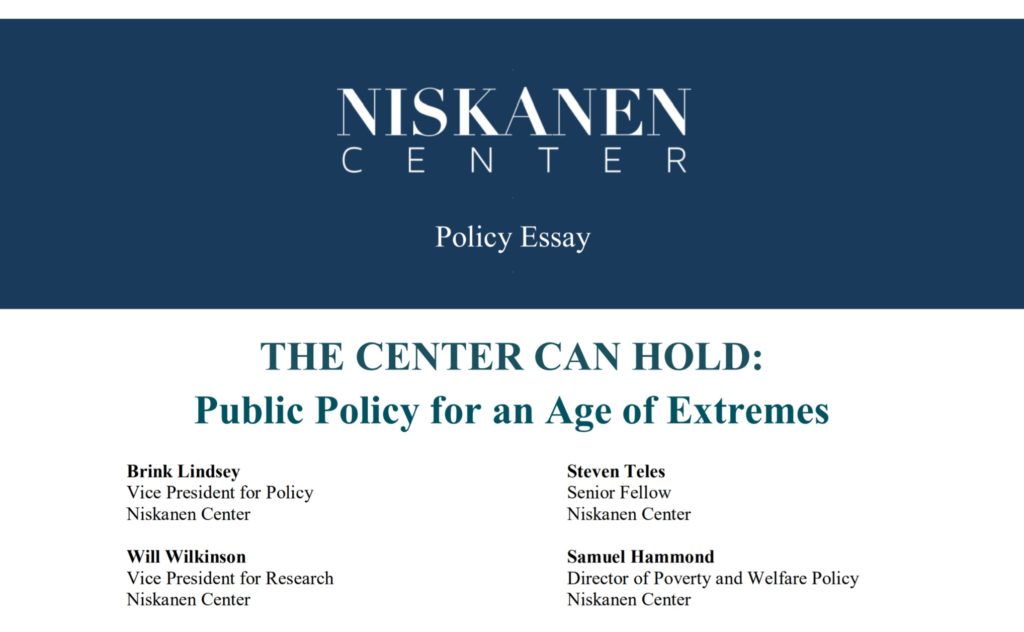—
American liberal democracy is experiencing a crisis of legitimacy, which began with Donald Trump’s victory in the Republican primary and was underscored by his elevation to the presidency. Neither event could have occurred in a healthy, stable, well-governed polity.
In this paper, we contend that new governing approaches are needed to resolve the crisis. The best way to quiet populist distemper and restore faith in democratic institutions is for those institutions to deliver effective governance. Failures of governance got us into this mess and public confidence will return only when government merits confidence by successfully solving real problems.
To succeed in this effort, we need a whole new way of thinking about policy. The center can hold, but it must be fortified with new convictions. Our political system has failed to address the mounting problems and dissatisfactions of the 21st century for many reasons. One important but neglected factor is that our prevailing ideological lenses, left and right, have gaping blind spots that render the most promising path forward invisible.
Conflict over economic policy fight has long been a clash between the “pro-government” left and “pro-market” right. However, overcoming our present malaise requires bold moves in both directions at once. We need greater reliance on market competition and expanded, more robust, and better-crafted social insurance. We need active government to enhance opportunity and less corrupt and more law-like governance. To clearly see these needs and how best to answer them, we need a new ideological lens that sees government and market as complements rather than antagonists.
Our hybrid vision rejects the false dichotomy between “big” and “small” government and combines the best aspects of the “pro-market” right and the “pro-government” left. Neither well-functioning market economies nor well-functioning representative democracies are self-creating, self-executing, or self-sustaining. The performance of markets and democracy depend on their structures, which are always substantially politically crafted and maintained. The right structures produce good results, while the wrong structures can cause disaster. Simply leaving markets alone doesn’t make them work well, nor does indiscriminately transferring private power and resources to government enhance the performance of democracy.
To restore flagging economic dynamism, we advocate far-reaching regulatory reforms to unwind distorted rules that favor privileged insiders at the expense of everyone else. At the same time, we need to bolster social insurance programs to address dislocations caused by creative destruction and maintain political support for robust market competition.
Our policy vision represents a sharp break from the prevailing orthodoxies of left and right, and is therefore hard to pin down with a handy, reductive label. Although we make the case for bold reforms, we believe the essential spirit of our project is one of moderation. The goal of the moderate is not to achieve perfection according to a single, unbending standard, but to strike a rough and workable balance among a variety of valid yet competing and perhaps irreconcilable objectives. In these disordered times, restoring balance will require major policy changes, and we do not shrink from the challenge. Yet our goal is not to make the world conform to some abstract, rationalistic schema. Rather, it is to work successfully and effectively within the world as it actually is, with all its messiness and confusion.
In the spirit of moderation, we have attempted to incorporate what is best in competing ideological traditions. We hope that the new synthesis we offer can help move our divided society toward the best version of itself and away from the toxic tribalism that afflicts us today.
—
